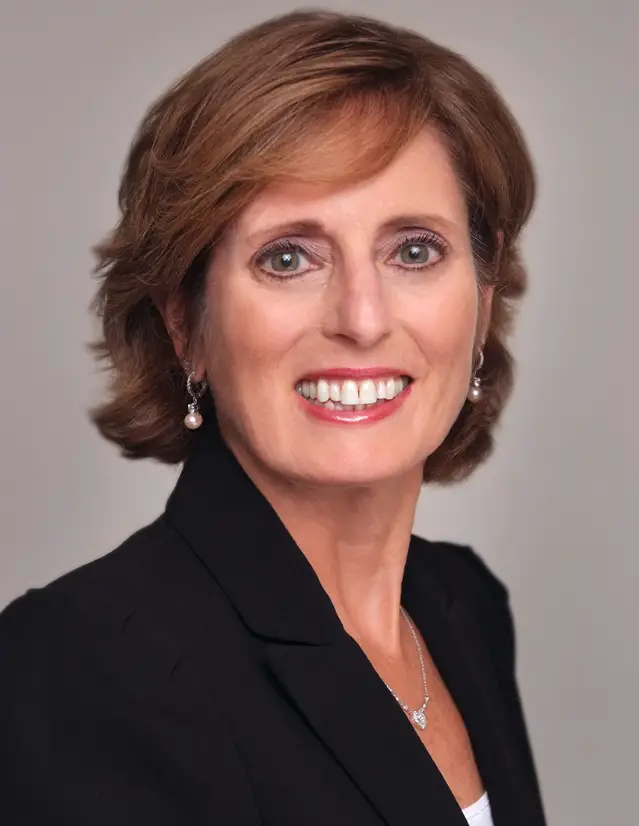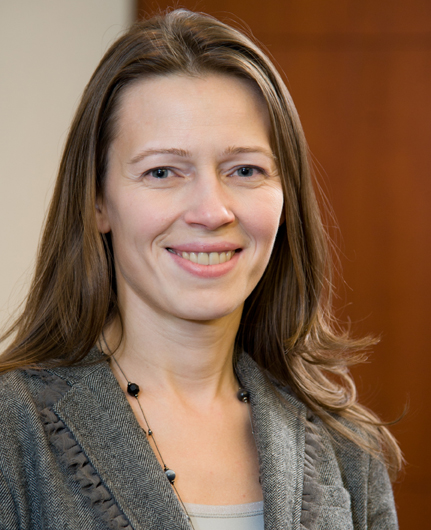When it comes to parity in accounting firms, a glass ceiling still remains for women. But in both Fairfield and Westchester counties, it appears the situation is improving.
“I”™ve been a CPA for over 35 years,” said Luise Mann Burger, a partner at Beers, Hamerman, Cohen & Burger in Fairfield. “My graduating class was about 50 percent women, but when I started my career at what”™s now Deloitte there were only three women ”” and even that wasn”™t typical.”

BHCB recently named three women ”” Jessica McCauley, Shari Elias and Sharon Brune ”” as its newest partners, bringing its total to 18, four of whom are women. It is still such an unusual occurrence that the firm included “glass ceiling” in its announcement.
The promotions were, however, “totally based on merit,” Burger was quick to point out. “They earned it. That”™s how we”™ve always operated ”” that people should be promoted and rewarded based on their accomplishments, not on their gender.”
She added, “I don”™t know that that happens all the time at other places.”
“You still don”™t see many women at the upper levels of accounting firms,” said Elias, who lives in Trumbull. “There are plenty of women graduating from college and joining the accounting field and they”™re increasingly well-represented at the lower ”” and ”” middle and higher-management levels ”” but not so much at the partnership level.”
Barbara Van Bergen, a partner at PKF O”™Connor Davies in Harrison, said her experience was similar to Burger”™s. “I started in public accounting at Arthur Andersen,” she said. “Their New York City office was very large and there was only one woman partner.” As a result, she said, “There were very few role models there for me. It was a very male-dominated business and it was tough to see the road to a partnership.”
Van Bergen eventually left Andersen to work in the private sector within the banking industry. “In those days and still today, that”™s also predominantly male dominated,” she said. “There were not very many opportunities for women leaders that I could see.”

About 14 years ago Van Bergen returned to the CPA world by joining PKF O”™Connor Davies, whose locations also include Stamford. “I was a senior manager and after about two years I felt that I”™d made the right choice,” she said.
That feeling was confirmed when she asked a managing partner what she had to do to become a partner herself. “He helped me set out goals that I then attained and I was made partner a year later.”
“The situation is slowly starting to change,” said Renata Howard, a partner at Citrin Cooperman, which has offices in Norwalk and White Plains, among others. “It”™s better than it was 30 or 40 years ago, but it”™s still a challenge even today.
“Accounting can be such a hard profession,” she said. “There are long hours, time pressures, and for many women there”™s the situation of being a primary care giver, either for their own children or for an aging or ill relative and that doesn”™t help their cause.”
Heather Ziegler, a longtime Deloitte employee who was named Stamford managing partner in 2015, said that while the 24/7 availability demanded by today”™s digital world and the “career vs. family” debate make accounting an increasingly difficult field, the disparity between male and female leaders is not necessarily endemic to the field. According to Deloitte research, about 12 percent of Fortune 500 companies in the U.S. have female representation in their boardrooms, while just 3.5 percent of those companies”™ chairs are women.
Meanwhile, according to the American Institute of CPAs”™ “2015 Trends in the Supply of Accounting Graduates and the Demand for Public Accounting Recruits” report, female CPAs have made the greatest progress in attaining partnerships at firms with 20 accounting professionals or less. The highest ratio of female partners, 43 percent, falls within the firm category of two to 10 CPAs, while the lowest, 20 percent, is associated with the largest firms of 100-plus CPAs.

While women comprise nearly half of all accounting graduates entering the profession, partnership and other leadership levels remain difficult to attain. Still, the group said that some progress has been made, with 2012”™s figure of women who had achieved partnership rising from 19 percent to 24 percent in 2015.
The relative lack of women in senior positions can be attributed to longstanding societal mores, Ziegler said. “If you go back 20 or 30 years, nearly all of the individuals in boardrooms were men,” she said, “while women, if they were working at all, tended to be found in secretarial or teaching positions.
“It”™s human nature to be more comfortable with individuals who are similar to you,” she continued, “who have a similar drive and personality and that helped solidify it being so male-dominated at the top.”
Those interviewed said their firms are all actively trying to give women a hand up the corporate ladder. Ziegler said Deloitte was one of the first accounting companies to do so, creating a women”™s initiative in 1993 at the direction of then-CEO Mike Cook. “He was looking at trends and turnover rates,” Ziegler said. “Public accounting has a high turnover rate anyhow, but he noticed that there was a vast difference between men and women leaving the company and wanted to learn what the company could do to better serve its women employees.”
Shortly afterward, Deloitte introduced flextime initiatives for all workers and added public speaking and networking opportunities for its female employees. The firm also instituted what Ziegler called a “dial down” plan, with which employees seeking time off to get married, have a child, or even train for marathons (“We have a lot of marathon runners,” she said) can do so while being kept in the loop on projects, and then dial their company activity back up once their goal has been realized.

Flextime options are also available at PKF O”™Connor Davies, said Van Bergen, as they are at Citrin Cooperman. “A lot of firms do that now,” said Howard. “We also have a backup child care program and ”˜Mentoring Moms,”™ which is a group of moms that haven”™t moved to a higher level yet. There”™s plenty of guidance and advice available.”
Elias said she was able to take advantage of flextime while raising her now-adult three children. “Particularly in the accounting field you see more firms working with male and female employees to help them spend more time with their families where possible,” she said.
For all the progress being made, there is clearly still plenty of work to be done ”” and much of the responsibility for effecting such changes lies with women employees themselves.
“You need to figure out what you want in terms of work-family balance,” said Burger, “and then find a firm that that”™s important to. You have to stay true to yourself and your goals, always put your best foot forward, and keep the dialogue going. All of our partners”™ doors are open.”
“Don”™t be afraid to be your own advocate,” advised Howard. “And figure out what”™s the right firm for you. There are a lot of firms out there ”” some may not go along with flextime or mentoring programs, but there are plenty that will fit with what you”™re looking for.”
“More and more companies are realizing the value that diversity of thought and of experience can bring,” Ziegler said. “Gender or race should be less important than life experience, but all of those differences can be a good thing. It drives value and helps give rise to innovative solutions that you might not otherwise bring to the table.”



















